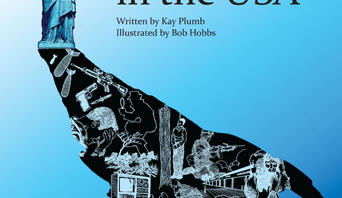Technology and Soul

I recently went to a workshop given by Glen Slater, PhD, on "Technology and Soul, Living at the Turning Point," and was just getting on here to write about it, when up popped a whole slew of new options I could add to my blog site — Do I want my readers to be able to flip through my old blogs, or scroll through my old blogs, or eat my old blogs, or what? — that I had to think about before I could even get onto my blog site.
And of course, by the time I suffered through those initial interruptions, full of seemingly pressing questions that sounded like they needed to be answered immediately, before I could go any further, before my blog started appearing out-of-it and antiquated to all observers, I was in great danger of forgetting what I had gotten onto my blog site to write about in the first place.
Perfect. And exactly what Slater’s workshop was all about.
We are absolutely inundated with choices. Many of them technological. Most promising to make our lives easier or to make our work go faster or to make us cooler or smarter or even more attractive than we (of course) already are. Most sounding downright irresistible, now that human beings have learned so much about how to market things to one another. So we scurry from choice to choice, trying to make the "right" one each time, trying to keep up, trying to do what everyone else is doing, leaking little bits of our own unique creative individuality all the time.
Soul making takes some peace and quiet. Some continuity. I had an entire chain of thought going about that workshop which will never quite exist again. Because it was booted out, rooted out — almost entirely expunged — by another set of ideas that popped up in front of it. Did you ever read Watership Down? (Great book.) At one point the rabbits are trying to get a big old dog to go in a certain direction, so one rabbit pops up in front of the dog, which it chases, and then another rabbit pops up in front of the dog, which it chases, and then another rabbit pops up in front of the dog, which it chases…
…that is our minds, folks: USA, circa 2000s. We run hard, but we are easily distracted as to direction.
50 years ago school children read Treasure Island or Tom Sawyer or Huckleberry Finn or Little Women. Today, many of our school children have to struggle to read Diary of a Wimpy Kid books. There are so many different levels of communication and entertainment available to us at all times that we can't bear to limit ourselves or our children to doing only one thing at any one time. But we know from brain scan studies that multi-tasking prevents deep comprehension of the tasks involved. Or, multi-tasking actually trains the mind to think shallowly. (Or, there are a lot more channels available to us today than we actually have the physical bandwidth to receive.)
We can't keep technology from affecting our souls. That's where we are. That's what's happening today. But we can, as Slater suggests, try and make its impact on our souls more conscious. We can make more of an effort to choose what will truly serve us and to decline what will not.
We can start to realize that the "hive mind" produced by cyberspace is not unbiased, it's actually extremely biased, and not biased towards wisdom, either — biased towards getting our attention. Biased toward selling products.
We can start to realize that we don't have to chase every new rabbit that pops up in front of us.
Books recommended by Slater:
You Are Not A Gadget, Jaron Lanier
Enough, Bill McKibben
Alone Together, Sherry Turkle
What the Internet Is Doing to Our Brains, The Shallows, Nicholas Carr
Movies recommended by Slater with an interesting slant on technology vs soul:
Blade Runner
Matrix
Metropolis, by Fritz Lang (the most expensive silent movie ever produced – get the restored version)
the Star Trek & Star Wars series, of course—noone wants to end up looking like Darth Vader










